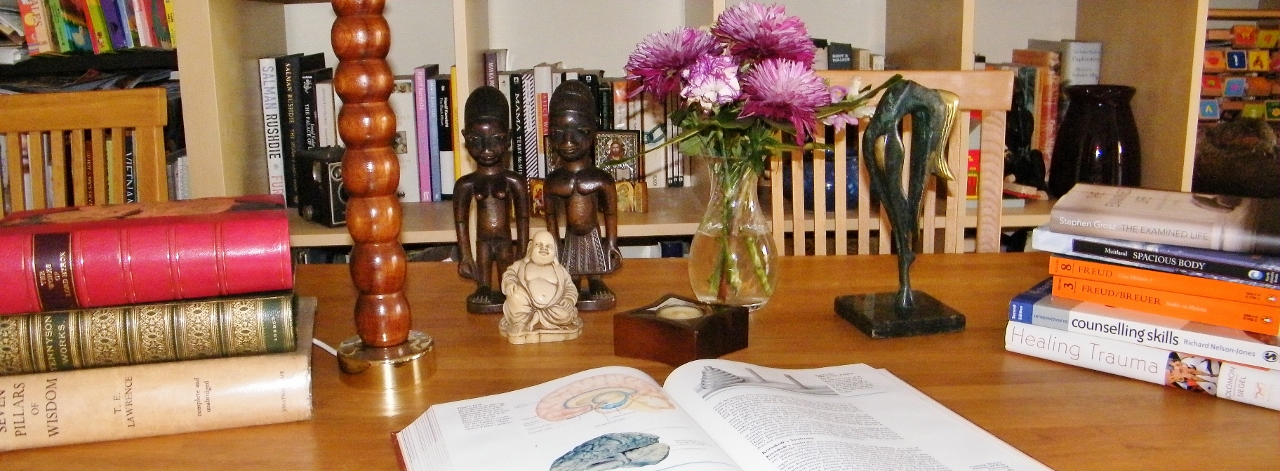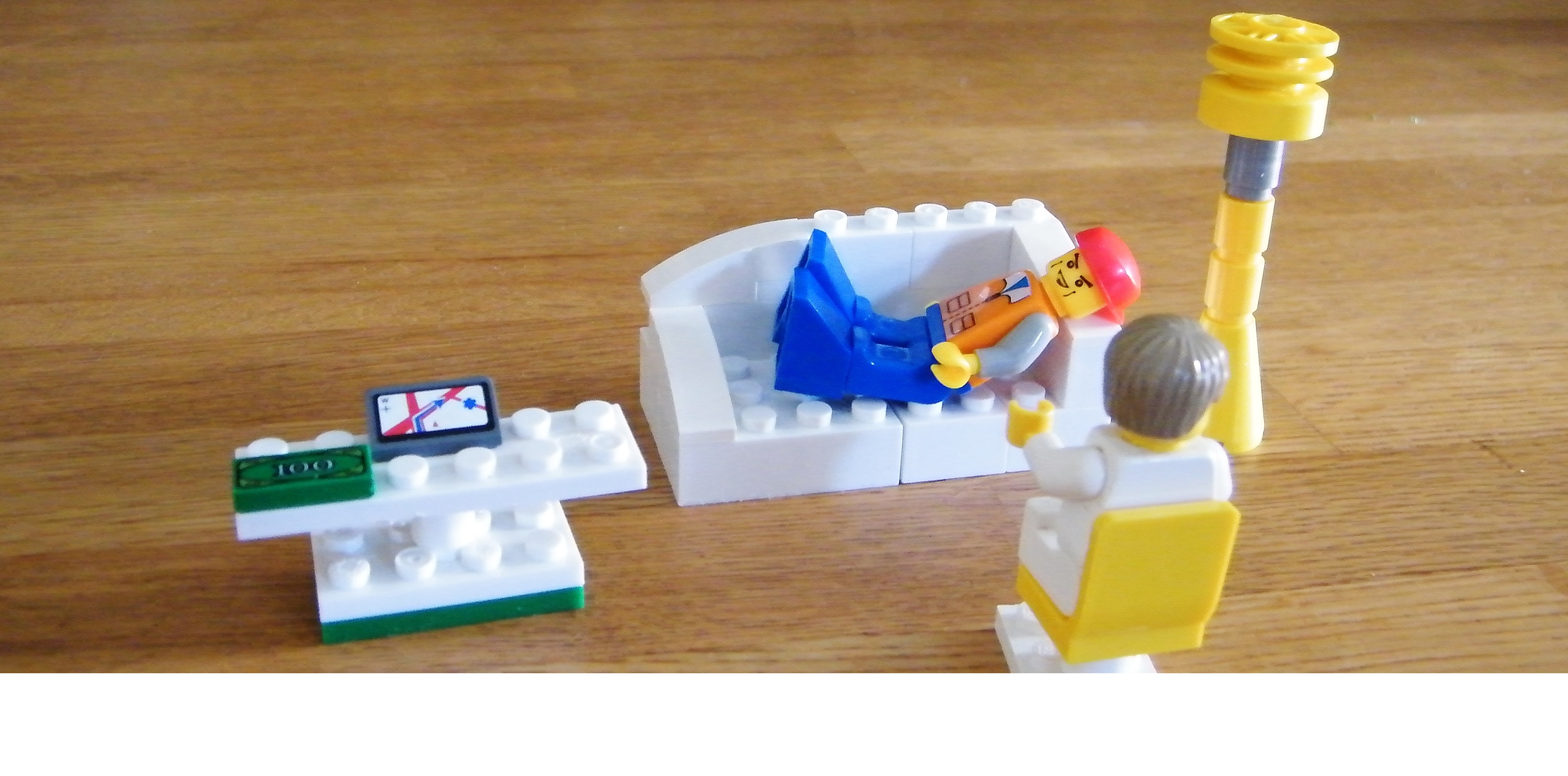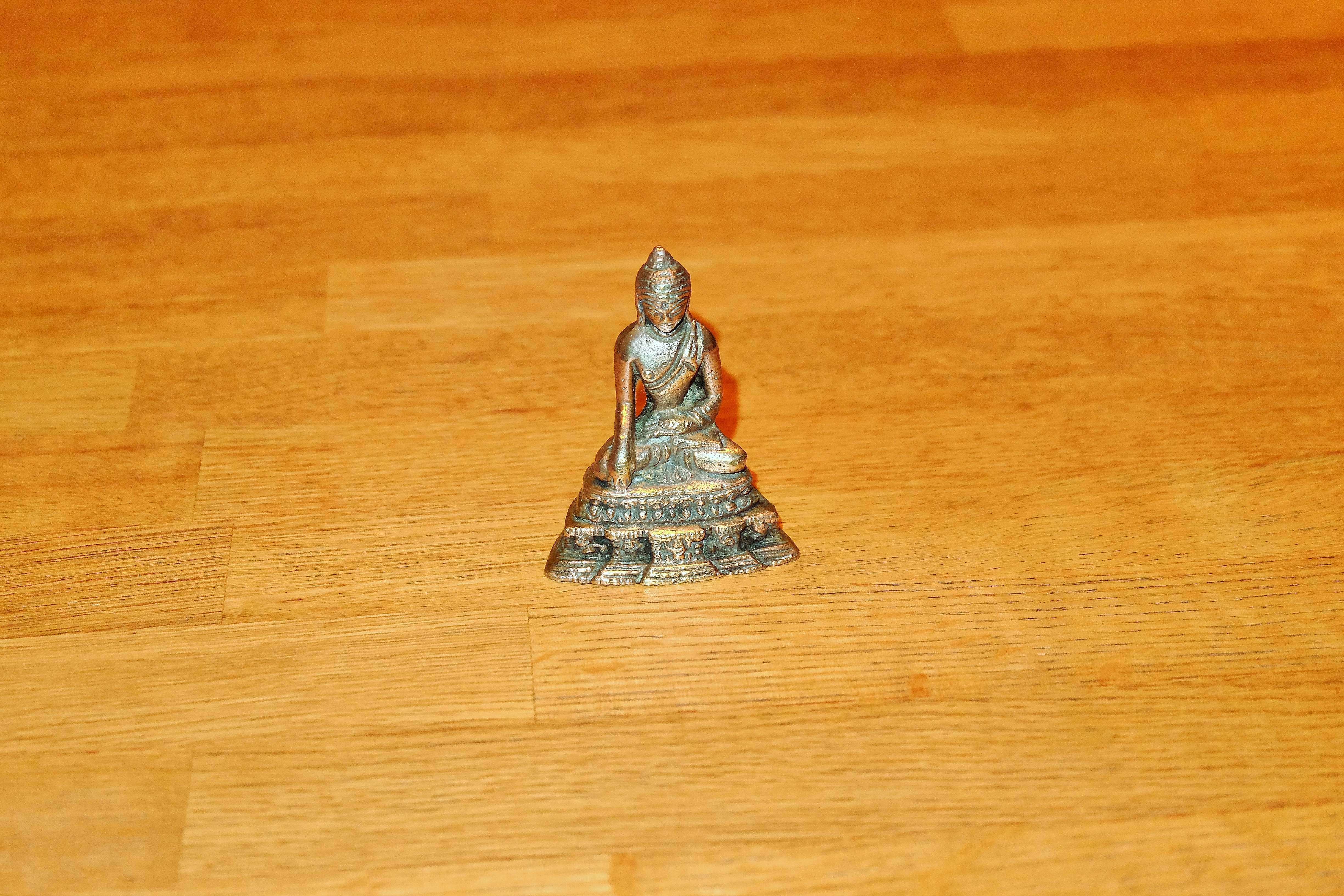By Gregori Savva, Sep 5 2015 11:38AM
I offer mindfulness exercises at Psychotherapy in Whitton, Twickenham using resources such as the Body Scan mp3 to guide you.
Anxiety and depression are as much feeling states and sensory experiences in the body, as they are psychological conditions or mental events in the mind. We know this because when we perceive a level of threat in the limbic region of the brain it can often trigger a “fight and flight response” in the autonomic nervous system, which affects how we react using sensory-motor nervous system in order to act. But what causes this anxiety and depression to remain trapped in the body and mind? What keeps it simmering away in the musculature, bones and nervous system only to be recycled by other stressful sensations?
If you feel, touch or press your skin, muscles and subcutaneous connective tissue wherever you hold anxiety or depression in the body, as a rule you will notice hard spots, tightening and contractions. For example, tightening around the muscles of the neck, shoulders and spine where your body primes itself for a defensive posture when the fight and flight response is triggered. Or a feeling of constriction around the chest, throat and windpipe, restricting the flow of breath during panic attacks. Or a deep feeling of aching joints, muscles & lethargy during depressive episodes, restricting movement & causing you to feel fatigued.
Bodies under stress are sensitive to the touch and may feel tense or painful, precisely in the region where anxiety and depression is felt. You may hold yourself in a continuous stoop, with your head hanging down, shoulders hunched or even crouching when you are attempting to relax. This kind of contraction becomes embedded in your posture as remain hunched and bent forwards. Any attempt to “hold yourself straight” doesn’t necessarily help, because the defensive posture does not come from weak back muscles or being lazy. It’s the result of chronic muscle contractions in the abdominal, chest and neck muscles. This pulls you forward: restricting movement and constricting breathing. Breathing is carried out by muscles, tendons and ligaments which are situated mainly at the front of the body – intercostal muscles, diaphragm and suspensory lung ligaments. The contraction of lung muscles and constriction of breathing is a central event in anxiety and depression.
During anxiety or panic attacks breathing difficulty is countered by hyperventilation, as you take in rapid, shallow breaths. This in turn throws the body’s balance out of kilter, which explains why we experience heart palpitations, breathlessness, trembling, weak knees & dizziness. In depression, people tend to under breathe, respiring too shallow and too little. As your posture is bent forward it causes contraction in the neck muscles and constricts the blood vessels so the oxygen supply to the brain is impaired. This means the body is supplied with too little oxygen, leading to apathy, exhaustion & a lack of movement. This also sends neurotransmitters to the brain which cause hopelessness, despair and a lack of confidence.
How do we get such continual contractions? Like all organisms, we contract when we sense the threat of danger such as a snail whose antennae contract when touched, or a tortoise retracting in its shell or a hedgehog in a tight ball. Remembering unpleasant, painful feelings repeatedly triggers our autonomic nervous system, warning us to avoid or defend against such situations in the future. If this reaction is provoked repeatedly, a continual state of contraction develops. When our reflexes are conditioned to react, we become hyper vigilant and ever more sensitive to further threat, even if it’s in your imagination from memories or anxieties about a future catastrophe.
These contractions are not usually visible to the naked eye, but as the affected person you can learn to ‘feel’ where they are located when anxiety is triggered. Only you can say what something feels like. Only you have the ability to attune yourself to the physical sensations and restricted movement in your body. But there is one problem, most people who experience chronic anxiety or depression have tried to numb the source of their painful experiences, by becoming detached and dissociating from their bodies – retreating to their heads. Slowly through the process of observing, body-scanning and attuning to your sensations you both enliven the body and create greater self-awareness. Therefore if you practice the ‘body scan’ as a daily exercise you will improve this and slowly ween yourself off defensiveness to restore feelings of empowerment, enablement & confidence.





0 Comment